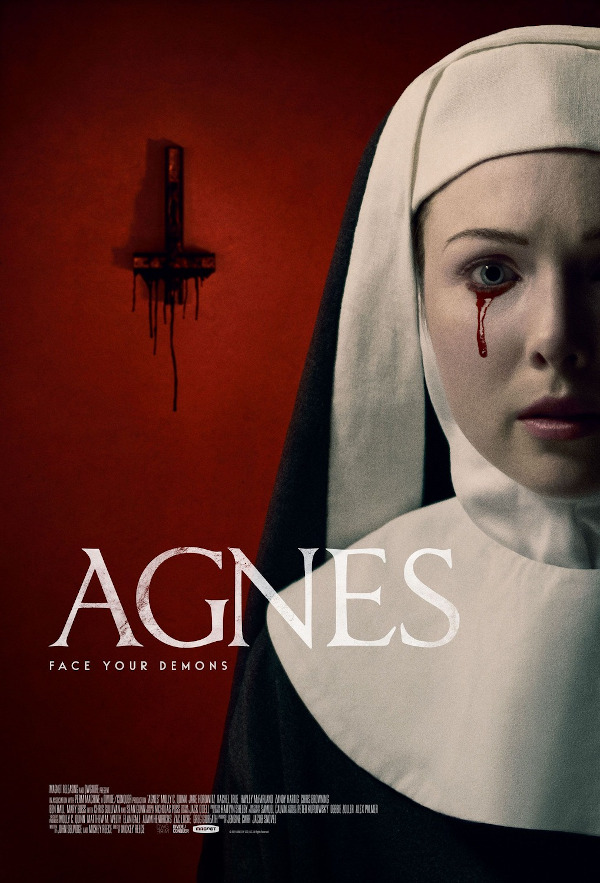- Title: Agnes
- IMDb: link

 Agnes is an odd film. Actually, it’s two odd films strung together loosely by a single thread, neither of which leaves the audience with any kind of resolution (although one could argue that’s the point of the second storyline). In some ways it’s the most frustrating film of 2021 as so much is wasted on a bi-polar tale that at times seems as lost as the nuns themselves.
Agnes is an odd film. Actually, it’s two odd films strung together loosely by a single thread, neither of which leaves the audience with any kind of resolution (although one could argue that’s the point of the second storyline). In some ways it’s the most frustrating film of 2021 as so much is wasted on a bi-polar tale that at times seems as lost as the nuns themselves.
The first-half of the film is a delightful exorcism plot of a priest (Ben Hall) who is facing damning charges of inappropriate behavior with children, but also with experience in the act of exorcism, but who doesn’t really believe in the rights or demons, and a neophyte (Jake Horowitz) who has not yet taken his vows, sent to a nunnery where Sister Agnes (Hayley McFarland) has shown signs of possession. We also get a defrocked priest (Chris Browning) turned sleazy celebrity for his work in the field, added to the mix when our overwhelmed priest turns to him for help.
This half of the film works well, as writer/director Mickey Reece and co-writer John Selvidge mix horror and comedy to a delightful boil. The idea that the priest sent to handle the exorcism doesn’t really believe in the rights, or even the existence of demons, and the humor that follows from this idea are completely unexpected. However, at the same time the film stays grounded in the seriousness of the situation and in the looming charges over the priest that makes it hard for his former friend and protégé to trust him completely.
However, following the last of several low-key botched exorcisms, the movie shifts gears so abruptly that it fades to black and restarts some time later following Sister Agnes’ best-friend (Molly C. Quinn) after leaving the order following the events we never see resolved. There’s some interesting stuff here which could easily have been more fleshed-out and developed into its own film, but along with the the difference to the story the shift in tone is also quite dramatic as the film jumps from comedic horror into a deathly-serious character study of a disaffected nun struggling with her life in the outside world. This story offers no answers as well as it ends just as abruptly, leaving us with two incomplete halves of a marginally connected film with moments of genius and introspection that flounders when the script needs to start making hard decisions.
What it does well, it does really well, even in only small measures. The acting from both separate casts is well done, which isn’t easy given that different actors, rightly so, believe they are in a different movie. And there’s a grittiness to the outside world that adds texture to the second-half of the film. Agnes never goes too far overboard with the demonic activity, just enough to confirm there’s something wrong with Agnes, before punctuating the exorcism to great comedic effect.
There are also some clever choices from the director and cinematographer Samuel Calvin on what to show on-camera and what to allude to off-camera. I’d only marginally recommend the film for the right audience, or for those interested in either half of the film separately. As a complete film, Agnes simply doesn’t work, but because of its odd shift and cobbled-together structure it’s certainly not easily forgettable.
Watch the trailer